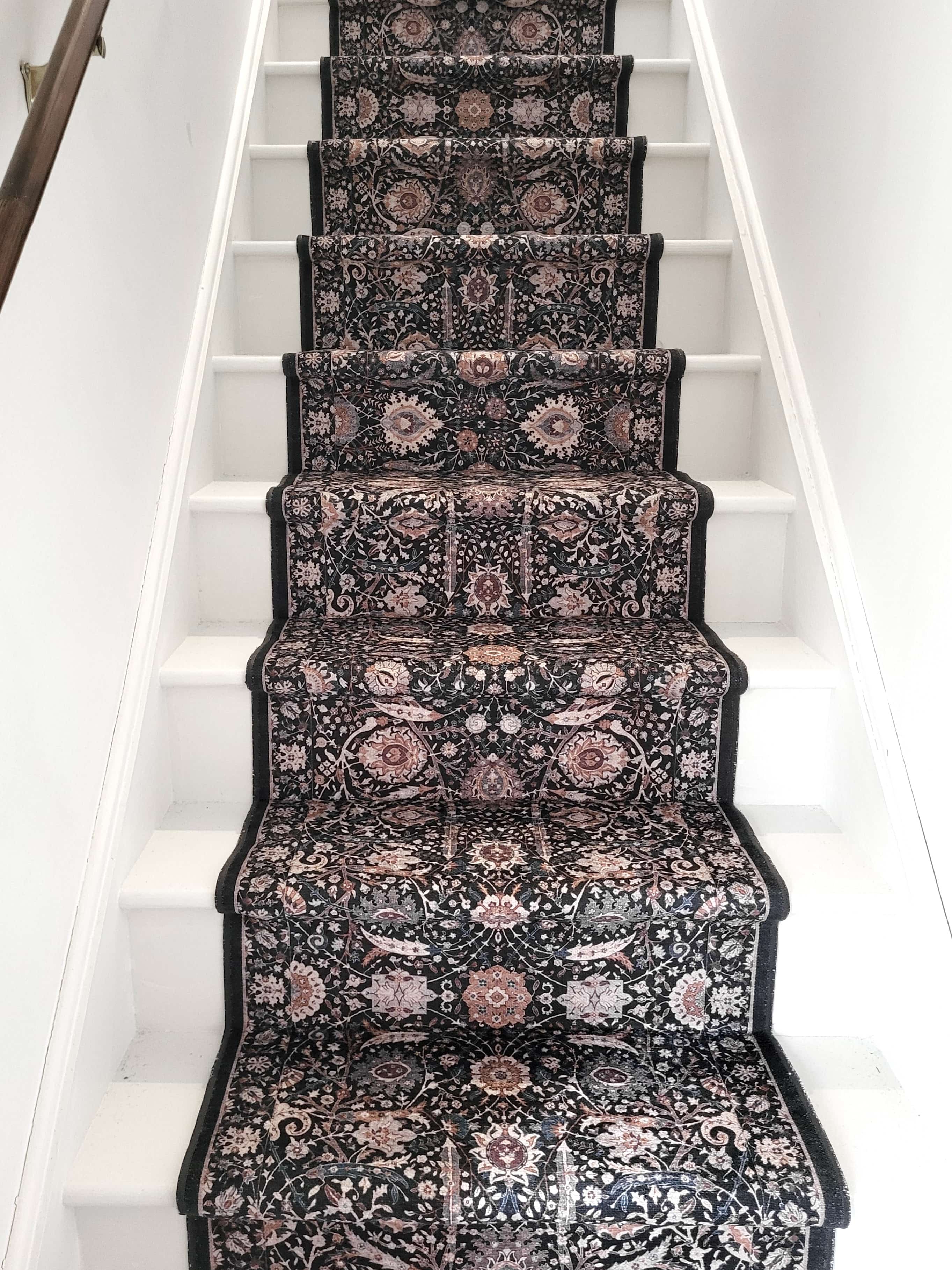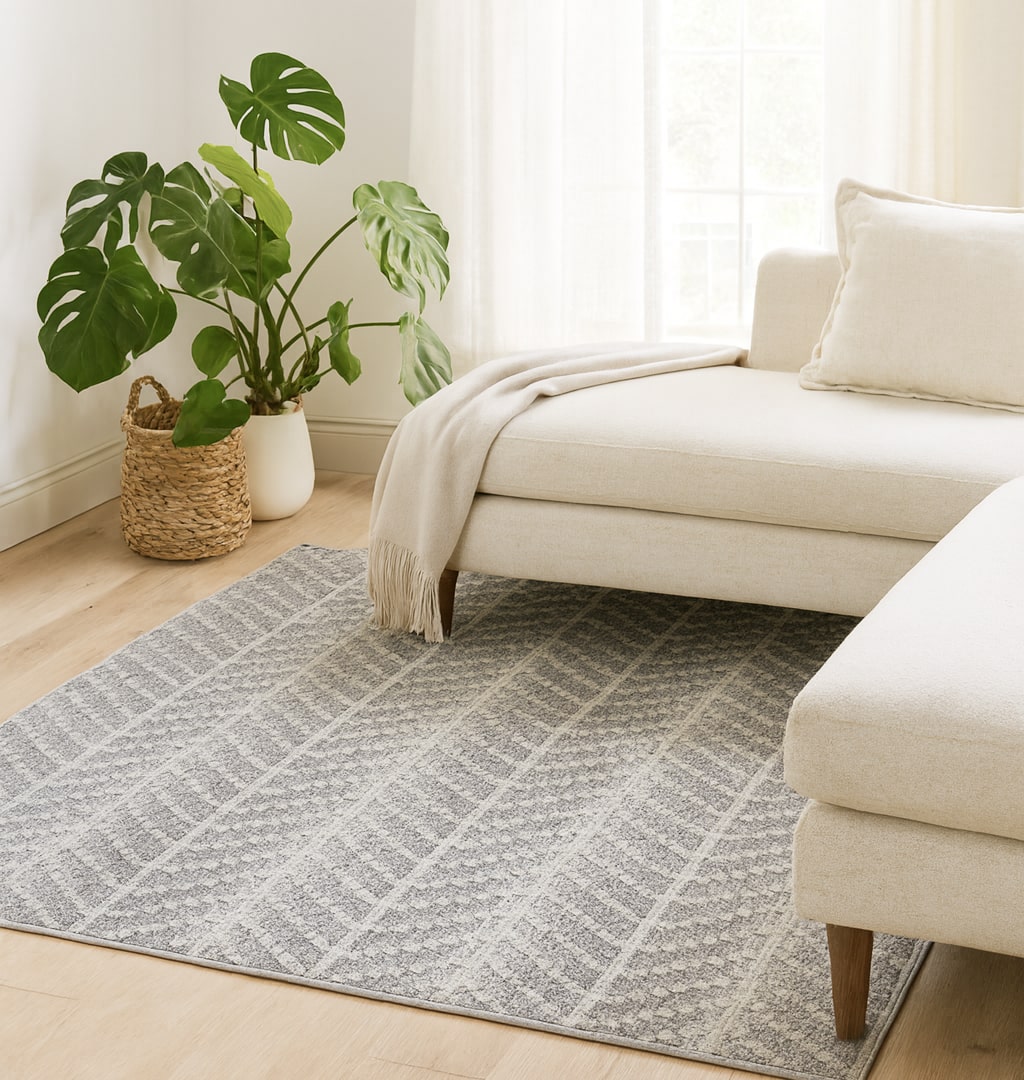Hop on the rug with us…and get to know how activist and life coach Michelle Saahene lives life well.
There’s a dream Michelle Saahene remembers having when she was about four or five years old. She was in an airplane, by herself, wearing a light-blue suit, flying around the world, helping people. “The vision wasn’t clear about what I was actually doing, but I just knew I was helping people,” she says. It stuck with her – so much so that years later, in her twenties, she’d use it to propel herself from a career that left her disappointed and dejected to one that inspires her every day.
Born and raised in Philadelphia to immigrant parents from Ghana, Saahene studied health policy and administration at college, and set her career path in healthcare, believing this was how she could best help others. “But I graduated and soon realized that healthcare is a business,” she says. “In this country, it’s about making money.” It sent her into a spiral of uncertainty, questioning her purpose in life.
Although she herself wasn’t fulfilled in her job, she’d still been helping others find fulfillment, giving advice to friends and acquaintances about their own careers and life goals. So she sought the insight of a career coach, who advised her to do the very thing she’d been doing for others for herself – learn how to become a life-coach.
“One great thing about coaching is that as you are learning the concepts you’re self-coaching yourself,” she says. The course-correction felt good and Saahene fell in love with her new calling immediately, back on track with her childhood dream to help others.
Speaking up in Starbucks
Guidance has always come to Saahene in divine ways. She believes it was fate that led her to a Starbucks in April 2018, where she witnessed a racist incident, spoke up about it, and became part of a viral moment as a result. “I fully believe that the Universe sent me there because I had been to this Starbucks only one time in the five years that I had lived in Philadelphia, and I didn't like that location, because it was not diverse at all,” she says.
On the day that she went in, two Black men came in shortly afterwards. What played out – the barista calling the cops on the men for no real reason and Saahane calling it out – is a well-known story that made headlines, and led to Saahene forming the organization From Privilege to Progress. Together with Melissa DePino, the organization has become a national movement urging white people to learn what racism looks like and how to call it out when they see it. “Just understanding what their privilege is, what that looks like, and how to use it for progress,” says Saahene.

It completely changed her life course, once again. But now, a year and a half after George Floyd’s murder, interest and support for Black Lives Matter, Saahene says, has waned. “I’ve realized, from doing anti-racism work for the past three and a half years or so, that the information is there, and a lot of people opt in and opt out when they want to. And so a lot of people, even though they know there's something wrong, make a conscious decision not to look at it.”
So she recalibrated once again, and focused on centering her work on wellness – offering women of color the tools they need to “learn to be well no matter what is going on around us.” To Saahene, wellness is social justice too. “Wellness is your physical, emotional, mental and spiritual health,” she says. “Your entire well being and how you show up in this world.”
Leaning on what worked for her gave Saahene more of the clarity she needed to shape her current career. “When I focused on my wellness, that's when I started gaining more mental clarity with what I wanted to do. When I wasn't well, I was in a career that I didn't like, I was allowing racism and whatnot to impact my daily life. I was drinking more alcohol. I wasn't eating well. Because I just didn't realize that it all mattered.”
So she encourages others to take better care of themselves, to notice what does and doesn’t resonate. “Without you focusing on yourself, you're not going to be able to show up for other people the way that you want to,” she adds.
Wellness and social justice
Focusing on women of color means Saahene’s advice and knowledge are being shared where they are really needed. “For women of color, our mortality rate is higher,” she says. “These are the ways I'm educating people, like, ‘These are the facts and this is why your wellness matters. This is why taking care of yourself is getting your own personal social justice.’ We cannot rely on a system that was never meant to care about our lives, and so you have to take care of that.”
It’s all come full circle, really. Saahene’s vision as a child visited her in a different form at the end of 2018. She was driving in her car without any music playing, when she felt the presence of her late grandfather and great grandfather. “I don’t believe in religion, but I very much believe in energy,” she says. “And all they said to me was, ‘You have a lot of work to do.’ I’ve been trying to call them back, for, like, three years,” she says. “I’m like, ‘Can you give me some more information? Am I going in the right direction?’”
She may not ever have received a concrete reply, but those who’ve benefited from Saahene's work surely are an answer.





Share:
How chef Ron Hsu pays tribute to his late mother through food.
How John Onwuchekwa is pouring a new narrative through coffee and conversation.